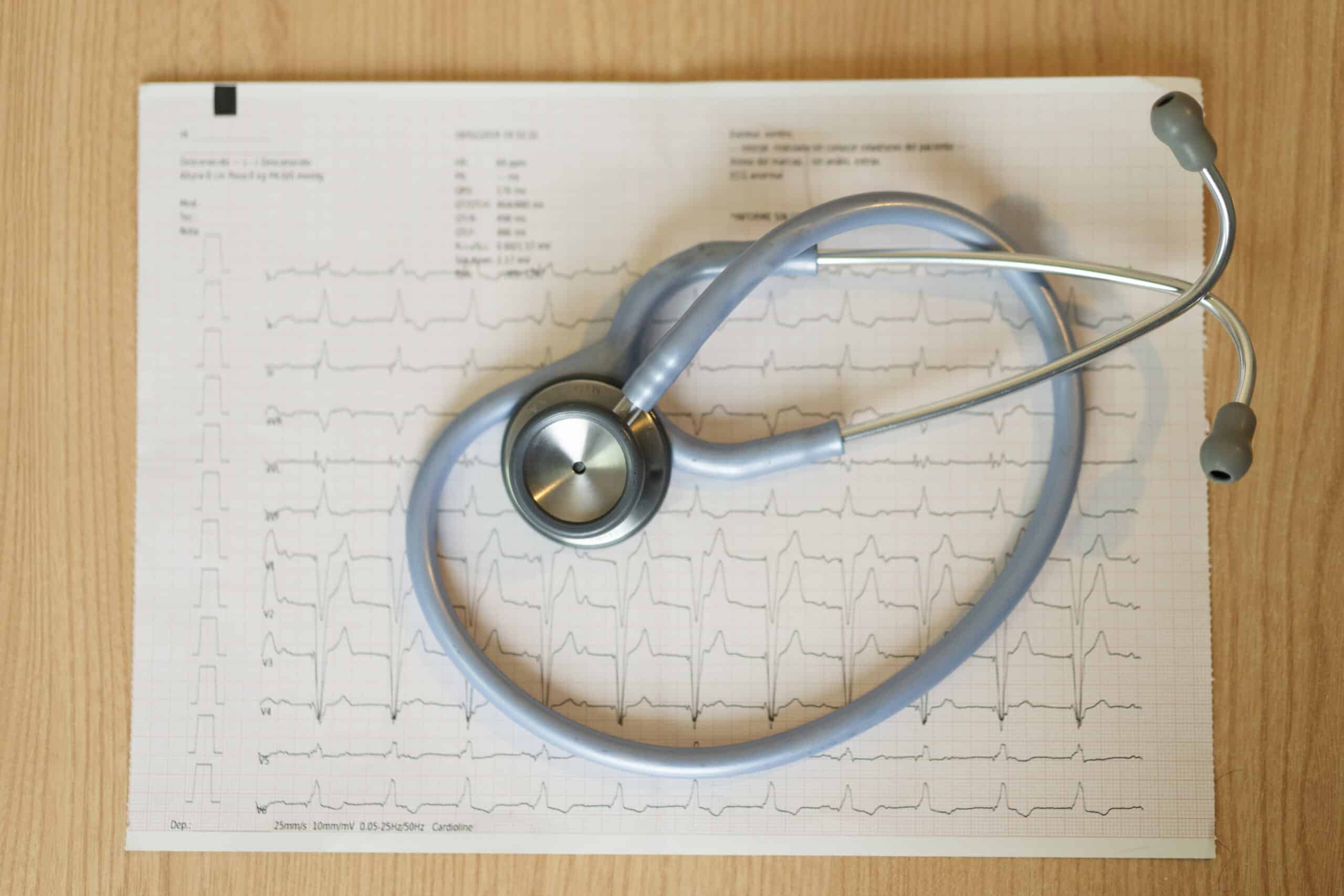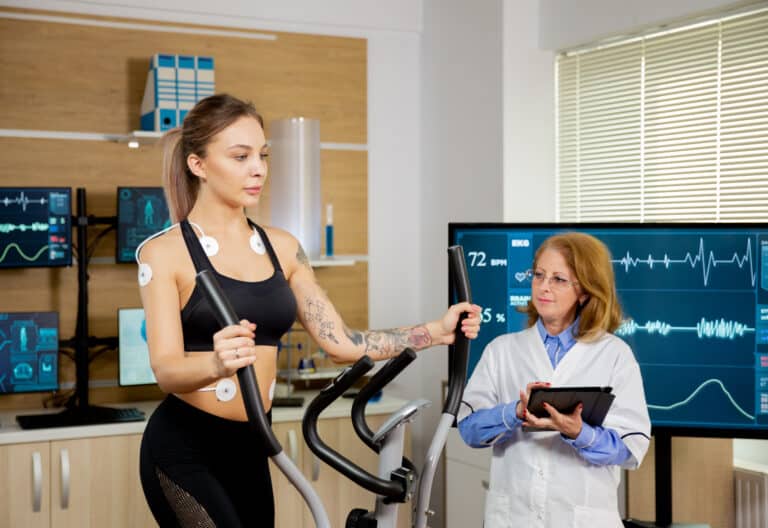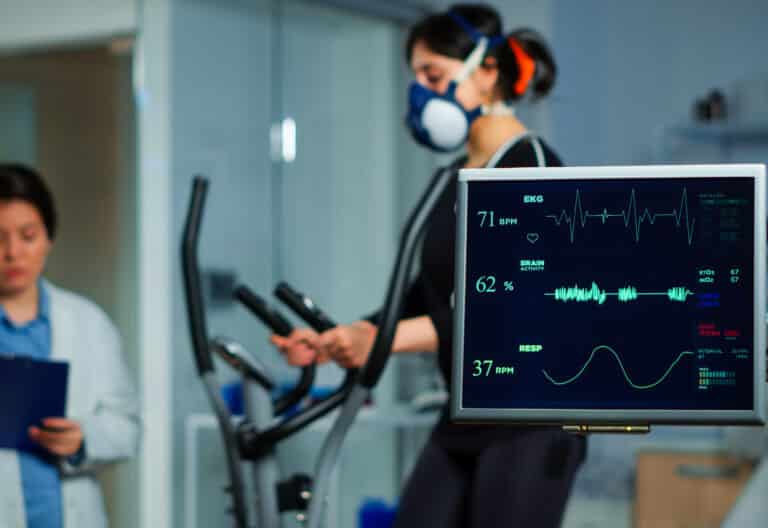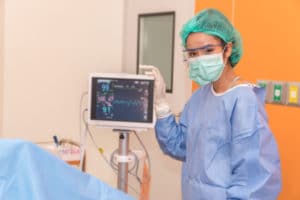Electrocardiogram (EKG) technicians play a crucial role in the healthcare system by conducting tests that help monitor and assess the electrical activity of the heart. If you’re considering a career as an EKG technician, you might think the job is as simple as performing an EKG and calling it a day. While performing EKGs is a significant part of the role, there’s much more involved. Let’s take a detailed look at what does an EKG Technician do!
Patient Preparation
The first and perhaps one of the most important responsibilities of an EKG technician is patient preparation. When patients arrive for their EKG, they may be anxious or nervous, especially if it’s their first time undergoing the procedure. It’s up to the EKG technician to set the patient at ease.
This involves explaining the procedure, letting the patient know what to expect, and answering any questions they might have. Patients may wonder if the procedure will be painful, how long it will take, or if it is invasive. In most cases, an EKG is a painless and non-invasive test, but the reassurance from a calm and confident EKG tech goes a long way in alleviating any fears.
This step also highlights the importance of strong communication skills. A warm, approachable demeanor can help patients feel more comfortable, ensuring the procedure goes smoothly.
Applying Electrodes
Once the patient is calm and prepared, the next task is to apply electrodes. Electrodes are small, adhesive patches with conductive gel that are placed on the patient’s chest, arms, and legs. These electrodes are critical for capturing the heart’s electrical activity accurately.
Positioning the electrodes correctly is essential. Any error in placement could result in inaccurate readings, which could lead to a misdiagnosis. Therefore, precision and attention to detail are key.
Before applying the electrodes, it’s important to let the patient know that the patches may feel cold due to the gel. This simple step avoids any unpleasant surprises and ensures a smoother process for both the patient and technician.
Calibrating the EKG Machine
After the electrodes are in place, it’s time to calibrate the EKG machine. Calibration ensures that the machine is working correctly and that the readings it produces are accurate. This involves adjusting settings like sensitivity, baseline, and filters on the machine.
This part of the job is a bit more technical, but it’s something that EKG technicians learn during their training. Correct calibration is crucial because even the slightest miscalculation could result in false data, leading to delays in diagnosing a patient’s heart condition. Attention to detail and technical competence are, therefore, a must for this step.
Performing the EKG
Once the machine is calibrated and the patient is ready, it’s time to actually perform the EKG. This is the core responsibility of the EKG technician. The technician monitors the heart’s electrical activity in real-time on the machine’s screen, looking for any irregularities in the waveform.
In addition to monitoring the heart’s activity, EKG technicians often need to keep an eye on the patient’s vital signs. Any noticeable irregularities or signs of distress must be reported immediately to a doctor or nurse.
During the procedure, it’s essential to remain attentive and ensure the machine is capturing the heart’s activity accurately. Performing an EKG may seem straightforward, but it requires a high level of focus to ensure no important data is missed.
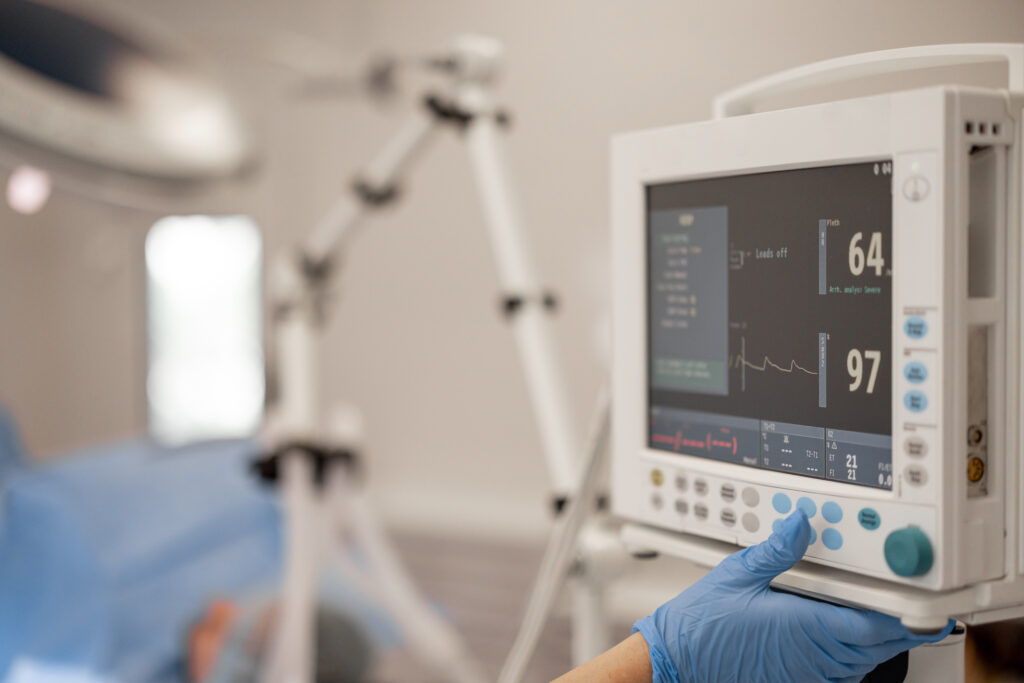
Recording Data and Maintaining Patient Records
After performing the EKG, the next critical task is recording the data. EKG technicians must document the results accurately, as these records are crucial for the attending physician to interpret and diagnose any heart conditions. Inaccurate data could lead to misdiagnosis, which could have severe consequences for the patient.
It’s also vital to maintain accurate patient records. Patients may undergo multiple EKGs over time, and comparing current results with past records can provide valuable insights into their heart health. A well-organized, thorough record-keeping system helps physicians access and evaluate the necessary data efficiently.
Assisting Medical Staff
EKG technicians don’t work in isolation. They are part of a larger healthcare team, including doctors, nurses, and other medical staff. One of their duties involves assisting medical staff by providing insights and relaying vital information gathered during the EKG.
For example, if the technician notices any abnormalities during the test, they must promptly report these findings to the physician. Additionally, they might be required to assist with other tasks, such as administrative work or helping with patient care during busy periods.
Being a team player and maintaining open communication with other healthcare professionals is essential for ensuring the smooth functioning of the healthcare facility.
Maintaining the Equipment
Regular maintenance of EKG equipment is another crucial duty. This involves cleaning the electrodes after each use, ensuring hygiene and patient safety. Proper maintenance also ensures the equipment functions correctly and produces reliable data.
Over time, electrodes and other components of the machine may wear out. EKG technicians need to be vigilant and order replacements when necessary to ensure that equipment is always in good working order. Preventative maintenance helps avoid machine breakdowns, which could lead to delays in patient care.
Emergency Response
While EKGs are typically routine procedures, there are times when a patient may experience distress during the test. As an EKG technician, it’s essential to be prepared for such situations. In an emergency, you must respond quickly, often initiating basic emergency response protocols.
This could involve administering basic first aid, calling for medical assistance, or simply remaining calm and ensuring the patient is stable until more help arrives. Quick thinking and the ability to stay calm under pressure are essential qualities for any healthcare professional, including EKG technicians.
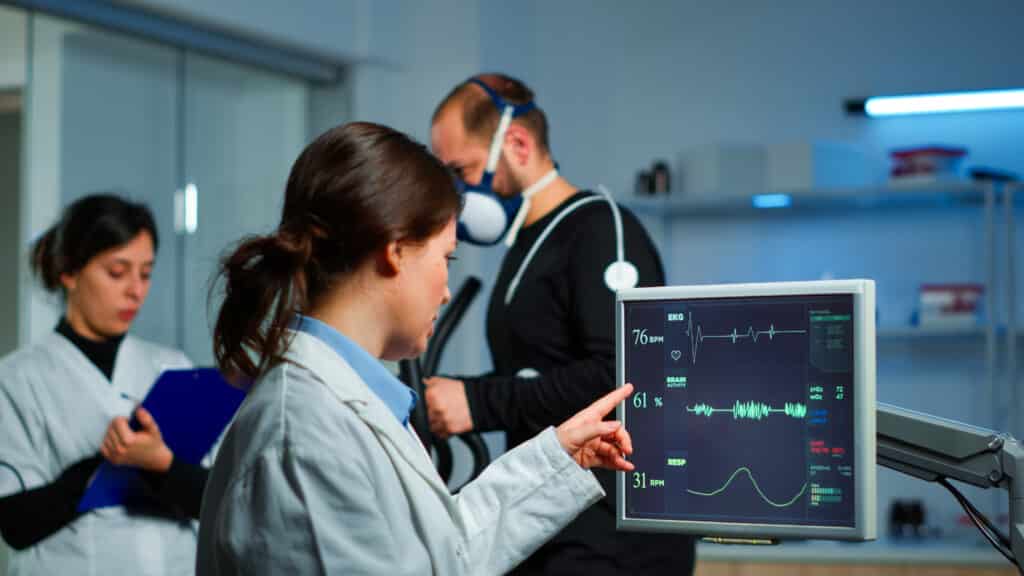
Conclusion
The role of an EKG technician extends far beyond merely conducting EKG tests. It’s a multifaceted job that requires strong communication skills, technical expertise, attention to detail, and the ability to work well within a team.
In summary, an EKG technician’s duties include:
- Preparing patients and calming their nerves.
- Applying electrodes correctly.
- Calibrating the EKG machine for accurate readings.
- Performing the EKG and monitoring vital signs.
- Accurately recording data and maintaining patient records.
- Assisting medical staff and being a team player.
- Maintaining and cleaning the EKG equipment.
- Responding to emergencies swiftly and effectively.
If you are considering a career as an EKG technician, understanding these responsibilities can help you prepare for the job and excel in the field. By mastering these tasks, you’ll not only ensure accurate diagnoses for your patients but also contribute meaningfully to the healthcare team.
Preppy’s EKG Technician Certification Program

Becoming an EKG Technician has never been easier with our 100% online certification program that could get you job-ready faster and more affordably than ever. In the fast-growing healthcare industry, you don’t need any prior experience to start—just a passion for an exciting and rewarding career. You could get certified within as little as months, opening doors to one of the highest-paying professions that doesn’t require a college degree.
Preppy’s program is entirely online, so there are no textbooks, classrooms, or rigid schedules. You can study at your own pace, even from your laptop. Plus, unlike other programs, you’ll gain confidence through Auburn University, a 150-year-old accredited nonprofit institution. To top it off, we offer an externship opportunity with one of our many partners, providing real-world experience to boost your resume—all included in the program!
Also read: Online Medical Assistant Programs – Essential Tips Before Enrolling
About:
Preppy was founded by higher education expert, Grant Aldrich, whose work on college affordability and accessibility has been featured in Forbes, Bloomberg Businessweek, Business Insider, American Express, AOL, MSN, Thrive Global, Reader’s Digest, Inside Higher Ed, Evolllution, EducationDive, and nearly 100 radio shows and podcasts.
Time is money. Instead of programs that could take 2 years, Preppy provides you with education in a few months through immersive online training.
Healthcare, IT, Business, Trades…Preppy gets you ready for the trending careers in our modern economy.
Our team of higher education and startup veterans has created the best solution so everyone can obtain the emerging careers of today and tomorrow.
We look forward to speaking with you. You may also call 800-729-1317
EKGEKG tech
